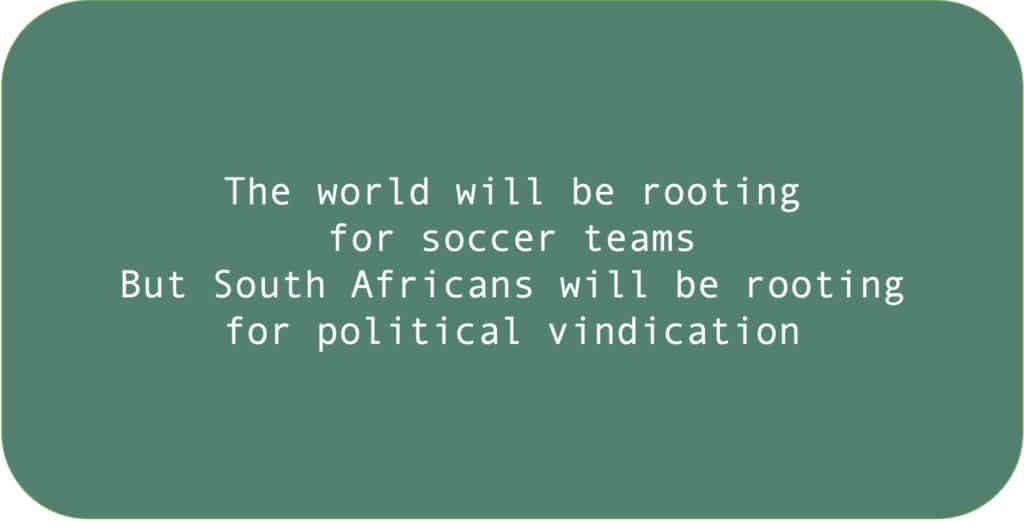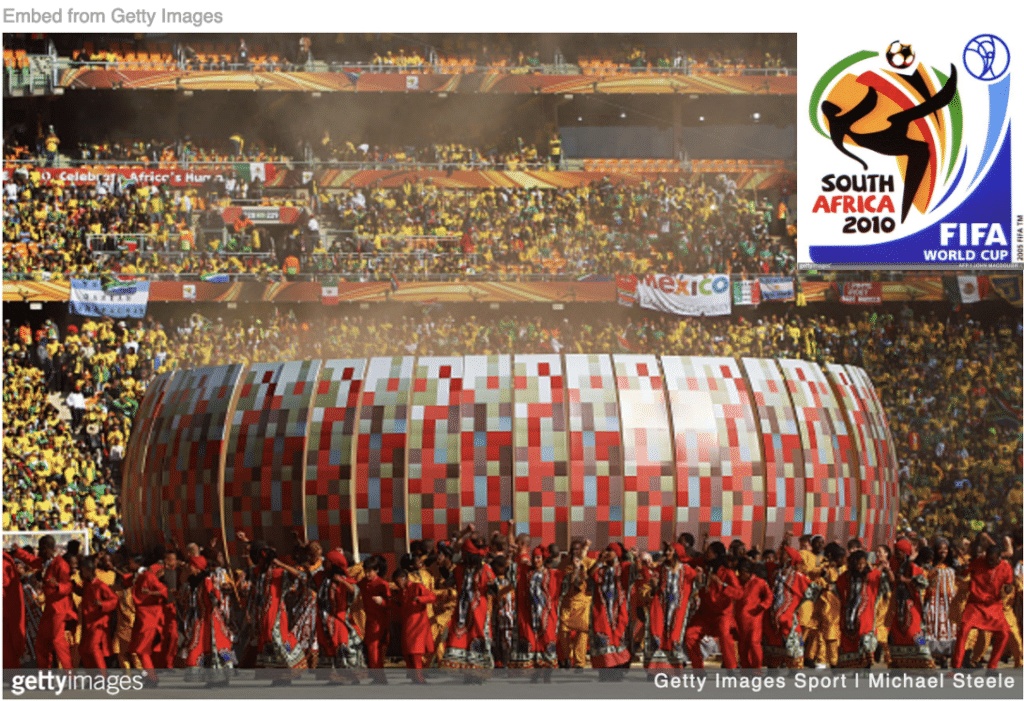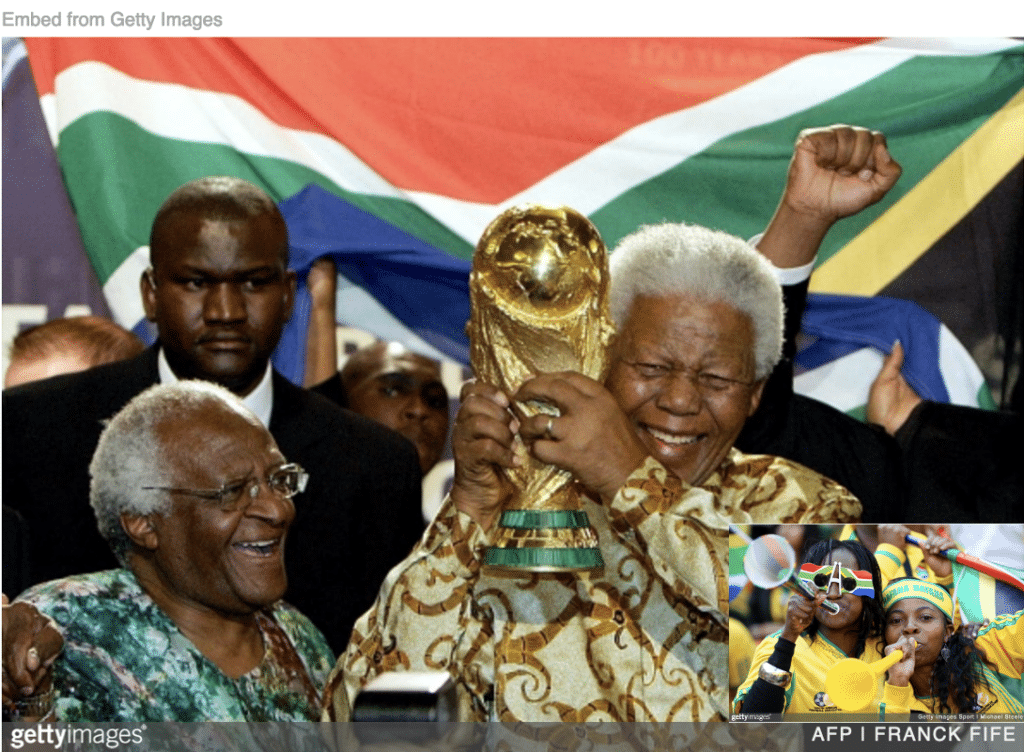
The World Cup
Today, the soccer World Cup kicks off in South Africa. But you do not have to be a fan of this “beautiful game” to be interested.
Indeed, the historical, political, and economic significance of this event is almost beyond measure. Compared with the 2008 Summer Olympics in China, it is at least tenfold.
That’s why the matches themselves (and even who wins that coveted Cup) are relatively unimportant. What truly matters is that South Africa, or should I say Africa, puts on a spectacular show.
A first for Africa
South Africa is the first African country to host the World Cup. Africa will be the focus of worldwide attention. And that’s significant enough. But, for the first time in history, people from every corner of the world will be gathering on this dark, beleaguered continent.
Surprisingly, non-Africans bought more tickets for matches than Africans. Perhaps even more surprising, Americans bought more tickets than any other nationality. After all, in America, soccer plays second fiddle to baseball, football, and basketball.
Granted, Latinos, Africans, and Europeans residing in America bought most of those tickets. And they did so to support their home teams, not Team USA.

Is Africa ready and able to host?
Things are not getting off to a promising start: First, a stampede of overexcited local fans injured many and marred a warm-up match between Nigeria and North Korea. Then, the stench from a nearby shantytown forced New Zealand to abandon practice.
To be fair, China did not get off to a promising start when it hosted the Olympics for the first time: First, a Chinese madman went on a rampage, killing an American tourist. Then, air pollution made it difficult for athletes to train. Yet, China went on to host the most memorable and successful Games in Olympic history.
No doubt the same will be said about South Africa hosting this year’s World Cup. Not to mention the fringe benefits that will redound to South Africans. South Africa has invested in infrastructure for a World Cup that its citizens have been waiting to see for generations.
But don’t get me started on the European barons of this sport scheduling this event in the dead of South Africa’s cold and rainy winter. It’s as if they don’t want the world to see too many local faces in the stadiums – at least, not during matches. Just kidding!
Team Cameroon, my pick
I’m predicting Cameroon will defeat Brazil in the final match on July 11!
What about the home team? It would take a fairytale ending like South Africa experienced in 1995. That was when its first post-apartheid team won the Rugby World Cup on home soil.
The movie Invictus dramatized that historic feat. Back then, as now, the occasion transcended sports. And, as much as watching the matches, the world was watching to see how a newly democratic South Africa would manage its notorious racial divisions.

The film portrays how Nelson Mandela navigated the first fraught year of Black rule with a zen-like demeanor. Key to his success was using the love both Blacks and Whites have for rugby as a metaphor for national unity.
No one seems more hopeful for this fairytale ending than Mandela himself. The photo of him hugging the World Cup trophy showed how much he wanted this most coveted prize in the wide world of sports. Indeed, Mandela hugged it as if South Africa’s victory were a fait accompli.
Leave a Reply
You must be logged in to post a comment.